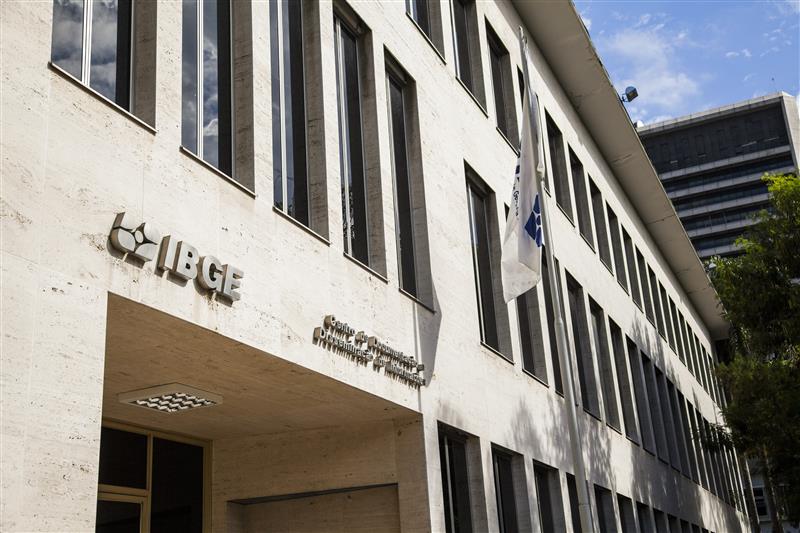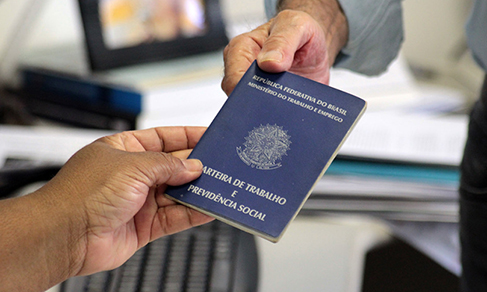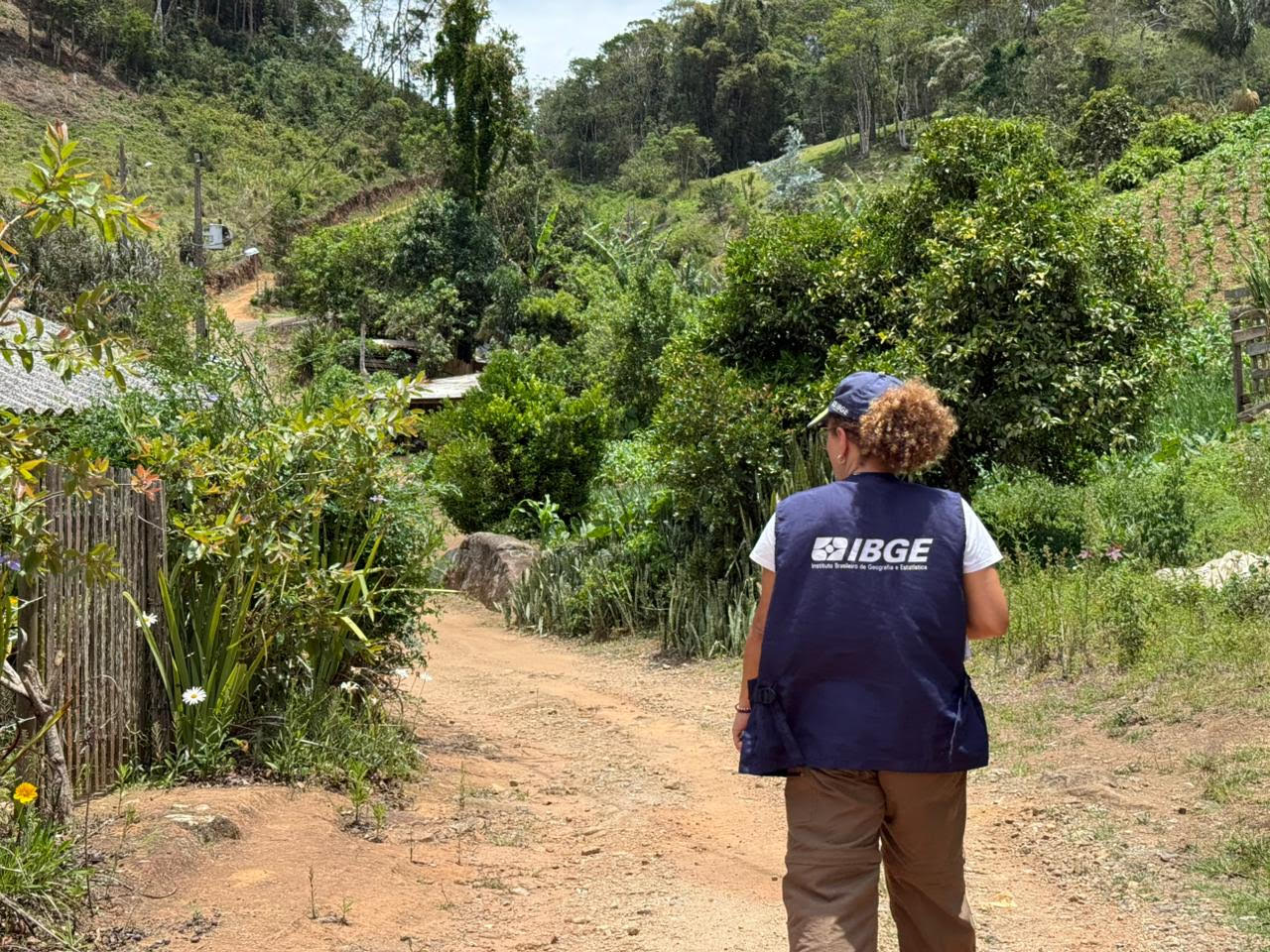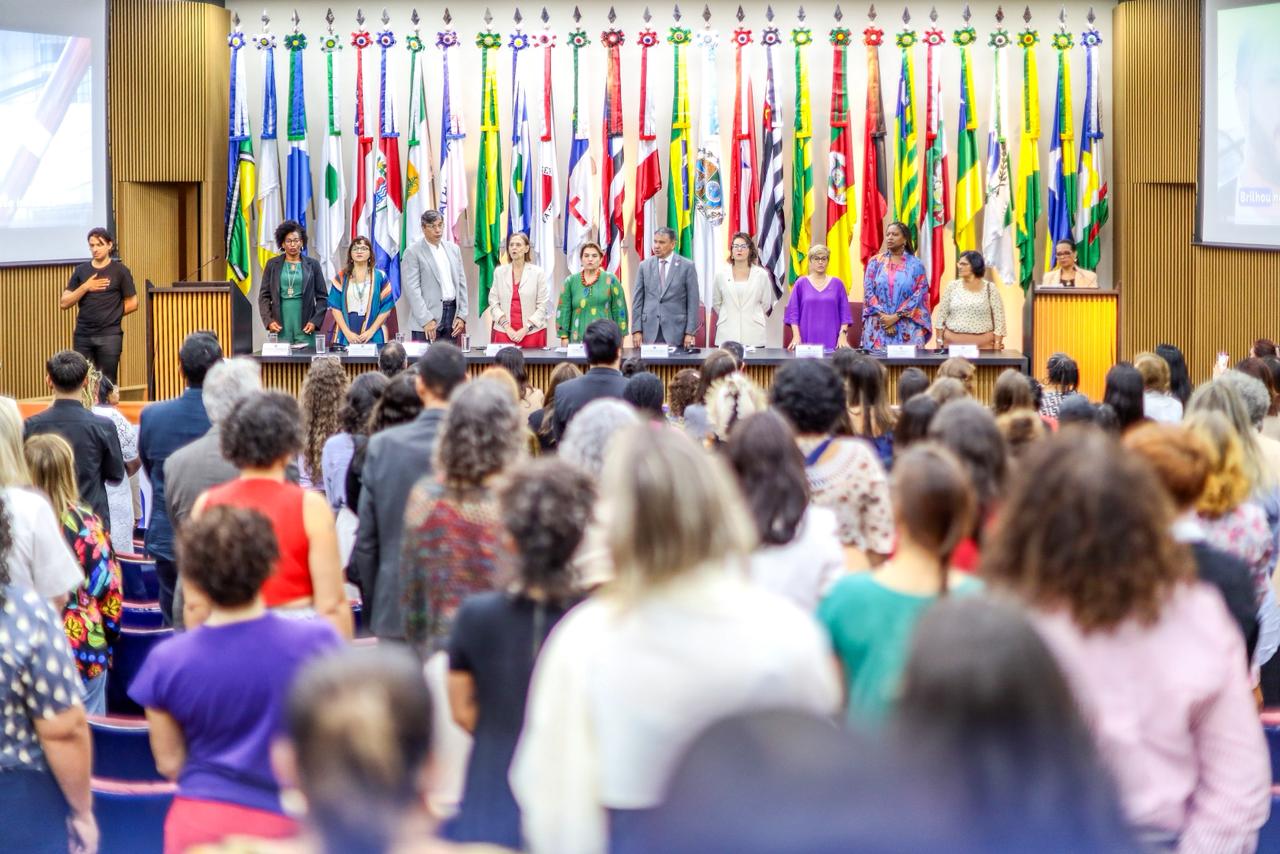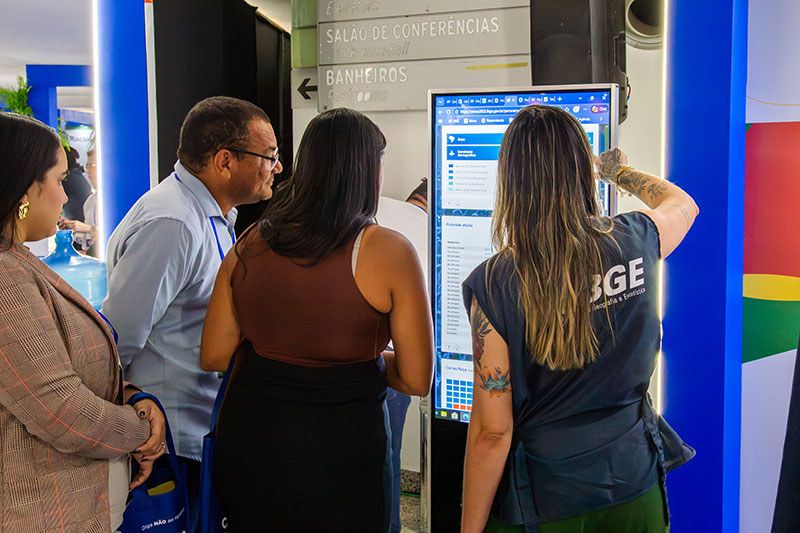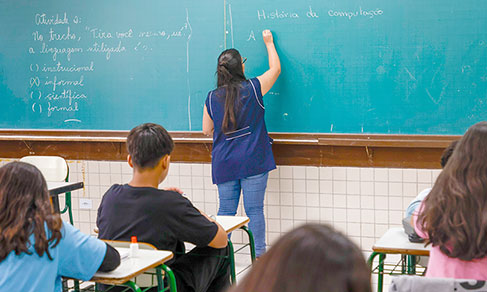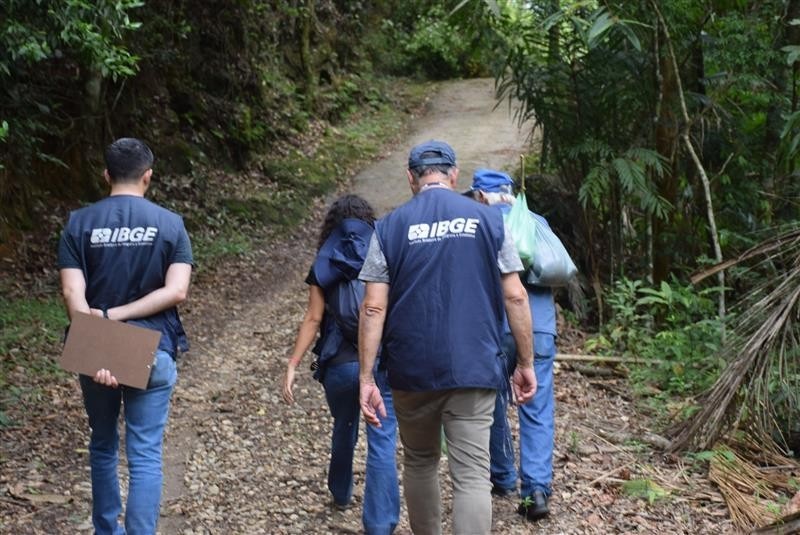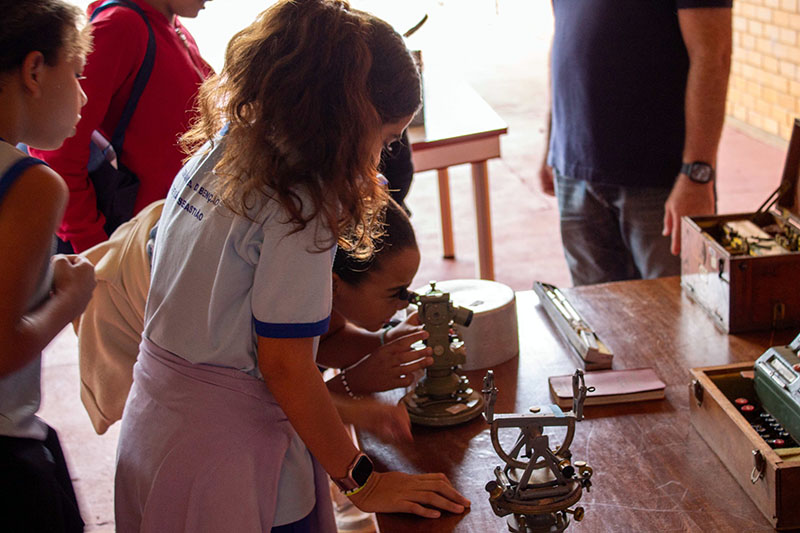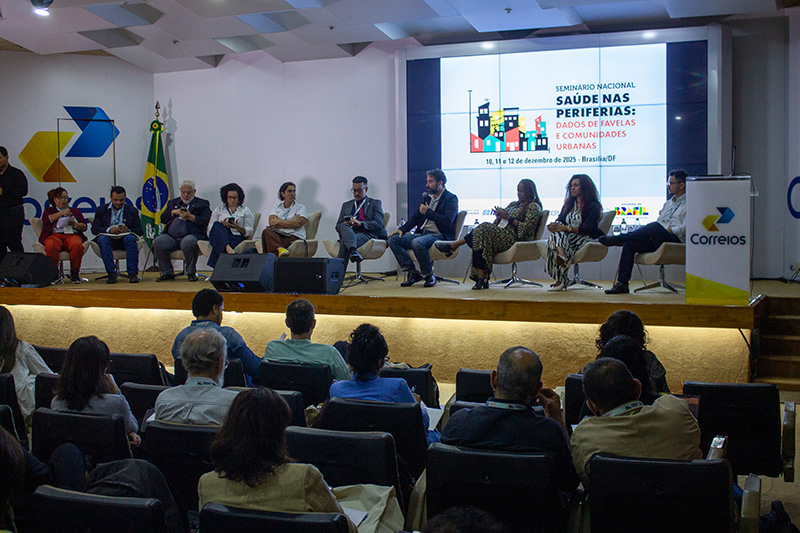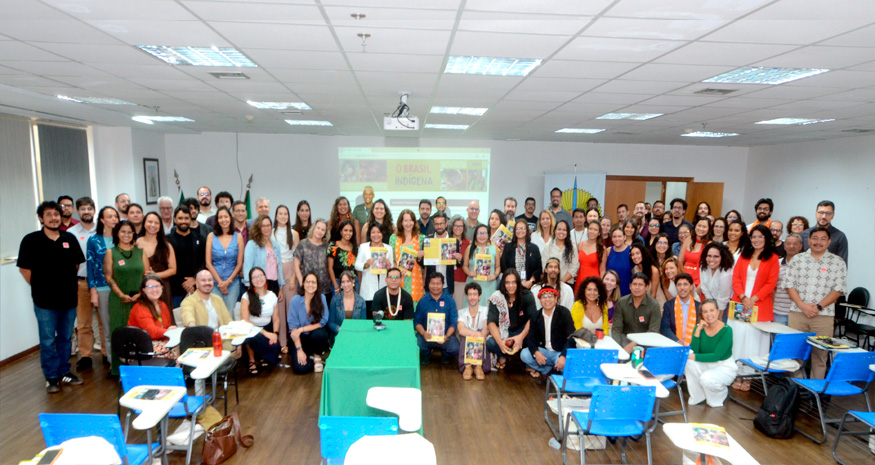Revista Retratos
Babacu coconut crackers preserve tradition in interior of Maranhão
January 24, 2019 09h00 AM | Last Updated: January 25, 2019 12h32 PM
In the Aldeia do Odino village in the municipality of Bacabal, approximately 250 kilometers from the capital of Maranhão, São Luís, women perpetuate a tradition: since they were kids up to more than 60 years of age, the babacu coconut crackers makes the state of Maranhão leader in Brazil in the extraction of almonds from this type of coconut. According to the IBGE´s Forestry Activities - PEVS, this state is responsible for 93% of the almonds of babacu coconut extracted in Brazil.
Huge stacks of this product can be seen in front of their houses, expecting to be cracked and have the almonds extracted and traded. Maria da Paz da Silva, 65 years old, is a coconut cracker since five years of age. Even far from the activities due to health problems, she insists now and again. "Some days I cannot rise my arm, but sometimes I still crack two or three kilos", tells the retired woman, who raised her sons, grandsons and great-grandsons with these earnings. "Coconut in the woods and ax on hand. This is what I had to raise my children", says Silva.
The expertise is passed from generation to generation and the issue of gender is key. "The activity is exerted almost exclusively by women. The girls learn early how to deal with the coconuts by following their mothers, since the collection in the farms, when they take them home to crack and extract the almond", explains Marta Antunes, IBGE´s researcher.
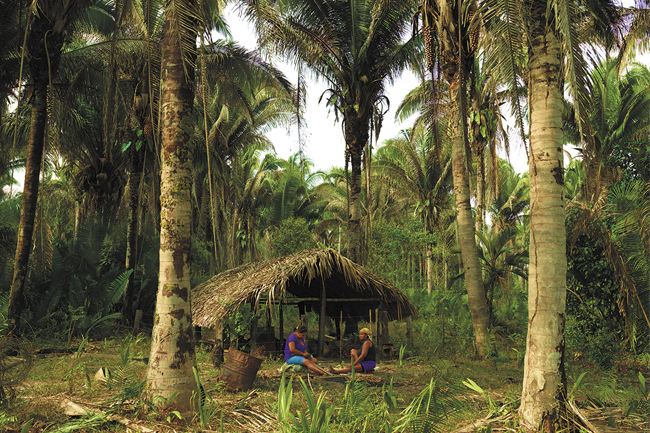

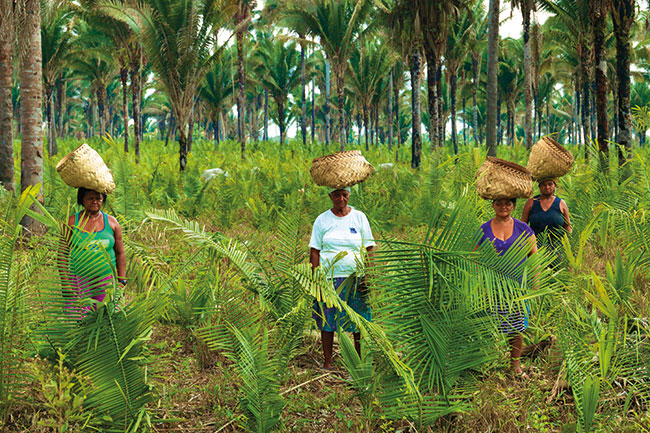
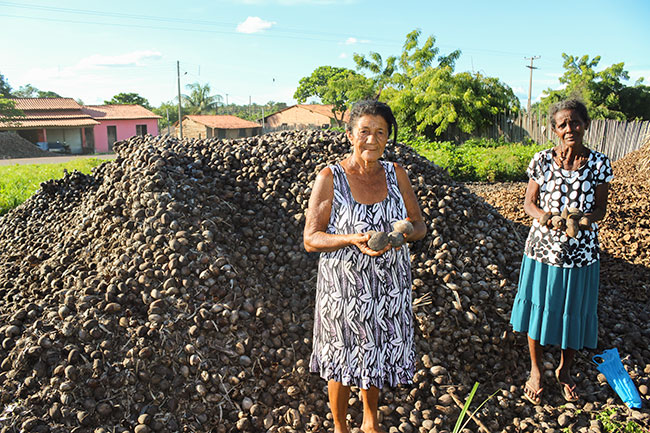
Owners of trees
The coconut crackers are one of the 15 Brazilian ethnic identities recognized as traditional communities and, therefore, should have their way of life protected by the State. Yet, their major conquests mainly came from the Interstate Movement of Babacu Coconut Crackers - MIQCB, which comprises the states of Maranhão, Pará, Tocantins and Piauí. Their major achievement was the creation of a state law, known as Free Babacu Act, conceived in Lago do Junco, Maranhão, and spread along several other municipalities.
The Free Babacu acts entitled the women rights on the coconut trees, regardless of the land where they were found. During their implementation, the women alleged that the right to life came before the right to a private property. "They made 'draws' before the law, i.e., they surrounded the coconut trees with their children around. They said that each coconut tree felled was a mother who dropped together", tells Marta Antunes.
In the municipalities with the Free Babacu Act, the farmers allow the entrance of the women in their farms without any negotiation and they are not allowed to chop down the trees and use agrotoxins. Antunes explains that the legislation assures that the farmers maintain a minimum distance among the coconut trees and keep adult and young trees together. Burning whole coconuts was not allowed anymore, as well as chopping the coconut tree and coconut bunches, increasing the availability of the coconuts and decreasing the distance covered by the women. "All this organization increased the price of the almonds", commented the IBGE researcher.
Nevertheless, the Free Babacu Act did not arrive in Bacabal and handling babacu coconuts is decreasingly worthwhile. That region bets in the Standing Babacu Forest Project, also articulated by the MIQCB, aiming at organizing the babacu crackers to know and fight for their rights, including the implementation of the Free Babacu Act. The project also envisages the creation of the Babacu Fund, with financial resources to improve the life conditions of the agro-extractive families.
See the full story in the Retratos Magazine no. 15.





